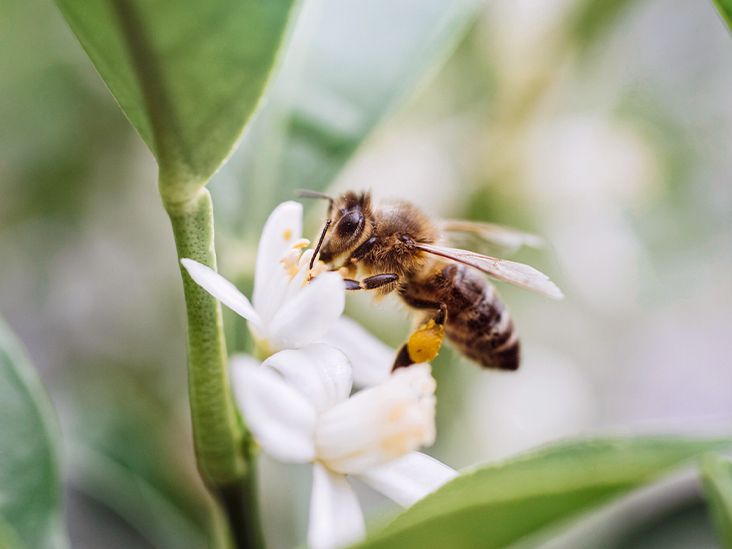Allergic reaction is the most common side effect of bee pollen, especially for people allergic to pollen, bee stings, or honey. Always consult a doctor before beginning any herbal supplement.

Herbalists claim bee pollen can offer a variety of benefits, including:
However, most of the scientific evidence for these claims comes from test-tube or animal studies. More research in humans is needed to confirm the true health benefits of bee pollen.
While bee pollen shows potential as a treatment for certain conditions, there have also been reports of rare but serious side effects. For this reason, it’s important to always consult a doctor before starting any type of herbal supplement.
This article examines some of the potential side effects of bee pollen.
As bees travel from flower to flower collecting pollen, some of that pollen may come from allergenic plants. In many cases, bee pollen retains the biological properties, and thus the allergenic potential, of the pollen from the plants.
For this reason, bee pollen has the potential to cause allergic reactions ranging from mild to severe. Symptoms can include:
If you’re considering using bee pollen as an herbal supplement, be aware of the risk of potentially severe allergic reactions. This is especially important for people who have pollen allergies or are allergic to bee stings or bee honey.
Rare but serious adverse reactions include:
- asthma symptoms, such as wheezing
- arrhythmias (irregular heart rhythms)
- dizziness
- fainting
- excessive perspiration
- weakness
- nausea
- vomiting
Taking bee pollen is possibly unsafe during pregnancy and while breastfeeding. Talk with your doctor if you are pregnant and breastfeeding and want to try bee pollen.
Doctors also don’t recommend giving bee pollen to children under 2 years old.
At this point, there’s not enough available information to know how bee pollen might affect these groups.
Bee pollen might negatively interact with the effects of warfarin (Coumadin), a medication doctors prescribe to prevent the formation or growth of blood clots.
The combination of bee pollen and warfarin
Rarely associated with herbal supplements, photosensitivity is an abnormal skin reaction to light.
A
Because the individual ingredients had not been associated with photosensitivity, researchers concluded that the combination of ingredients could have potentially interacted to cause this toxic reaction. Researchers recommend caution when combining multiple herbs and supplements.
Since no other reports of photosensitivity to bee pollen have been published since this case report, photosensitivity may be a rare and unusual reaction to bee pollen.
An early and singular
The 49-year-old man had been taking the supplement for over 5 months. He developed a number of health problems, including interstitial nephritis with the presence of eosinophils, which suggests drug-induced acute renal failure.
After stopping the supplement and undergoing hemodialysis, the man’s condition improved.
Researchers concluded that although there’s not much detailed information on the adverse effects of bee pollen, it should be taken with care, either on its own or as an ingredient of nutritional supplements.
Always talk with a doctor before starting any course of supplements, including bee pollen.
What is bee pollen?
Bees collect pollen from flowers and bring it back to the hive to make food for the bee colony. Bee pollen
- minerals
- vitamins
- carbohydrates
- proteins
- sugars (glucose and fructose)
- amino acids
- fatty acids
- flavonoids
- bio-elements, such as:
- sodium
- magnesium
- calcium
- phosphorus
- potassium
While bee pollen shows some potential as a complementary treatment for certain conditions, there have been some reports of rare but serious side effects, including allergic reactions and negative interactions with certain medications.
Since there’s no recommended dose of bee pollen, it’s difficult to know how much is beneficial and how much could trigger a reaction.
Always consult a doctor before adding bee pollen or any other herbal supplement to your diet.




